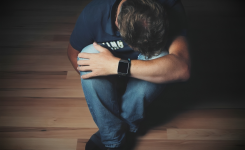In today’s interconnected world, social media has become an integral part of our daily routine, shaping how we communicate, work, and even perceive ourselves. With platforms like Facebook, Instagram, Twitter, and TikTok, it’s never been easier to stay connected. Yet, this constant connectivity comes with its own set of challenges, especially concerning mental health. This blog post will explore whether deleting social media is a sign of depression or a step towards a healthier lifestyle.
Understanding Social Media and Mental Health
Social media’s impact on mental health is a multifaceted subject, with both positive and negative aspects. On one hand, it provides a platform for creative expression and community engagement. On the other, it can foster feelings of inadequacy and isolation. Recognising these effects is vital to understanding their influence on our well-being.
A positive impact of social media is its ability to connect individuals across distances. It serves as a support network, offering encouragement and advice. However, the pressure to maintain a flawless online persona can lead to self-comparison and diminished self-esteem. These contrasting effects underscore the complexity of social media’s role in mental health.
Depression manifests in various ways, and understanding its common signs is essential. Symptoms include persistent sadness, loss of interest in activities, changes in sleep and appetite, puffy eyes and difficulty concentrating. For some, the decision to delete social media may be an attempt to address these symptoms, while others might view it as a proactive step toward mental wellness.
The Decision to Delete Social Media
There are numerous reasons why individuals choose to delete their social media accounts. While some may do so as a means of self-preservation, others might seek a more balanced relationship with technology. Examining these motivations can provide insight into the underlying sentiments driving such decisions.
One common reason for deleting social media is the desire to regain control over one’s time and attention. The endless stream of updates can be overwhelming, leaving individuals feeling drained and unfocused. By stepping away, they hope to create space for more meaningful interactions and activities.
Case studies offer a glimpse into the diverse experiences of individuals who have chosen to disconnect. Some find relief in reduced anxiety and improved concentration, while others miss the sense of connection and community. These stories highlight the personal nature of the decision to delete social media and its varied outcomes.
Is Deleting Social Media a Sign of Depression?
The connection between social media and depression is a topic of ongoing research and debate. While excessive social media use is often linked to depressive symptoms, it’s essential to approach this subject with nuance. Social media can contribute to depression, but it’s not the sole cause.
From a psychological perspective, social media can amplify existing vulnerabilities, such as low self-esteem or social anxiety. The curated nature of online personas can lead to unrealistic comparisons, intensifying feelings of inadequacy. However, for some, the act of deleting social media may be a coping mechanism rather than a symptom of depression.
Insights from psychologists shed light on the complex relationship between social media and mental health. While it can exacerbate symptoms in some individuals, it also provides a platform for support and connection. The key lies in understanding one’s relationship with these platforms and seeking balance.
Wisdom Quotes on Social Media and Well-being
Finding balance in our digital lives requires wisdom and mindfulness. Here are some wisdom quotes to inspire a thoughtful approach to technology and mental health:
“The greatest wealth is to live content with little.” – Plato
“Happiness is not something ready-made. It comes from your own actions.” – Dalai Lama
“Comparison is the thief of joy.” – Theodore Roosevelt
How Can We Cultivate a Healthy Relationship with Social Media?

Deleting social media isn’t a solution for everyone, but it’s essential to evaluate our relationship with these platforms regularly. Here are some tips for creating a healthier digital life:
- Set boundaries: Establish designated times for using social media and stick to them. Avoid scrolling mindlessly when you have other tasks to complete or before bed.
- Be intentional: Before posting or engaging with content, ask yourself why you’re doing it and how it will make you feel.
- Curate your feed: Unfollow accounts that trigger negative emotions and follow ones that bring positivity and inspiration into your life.
- Reach out for support: If social media is negatively impacting your mental health, seek help from a trusted friend or professional counselor.
- Take breaks: Disconnecting from social media for a day, weekend, or longer can be rejuvenating. It’s like taking a bath for your mind, providing perspective on our relationship with technology.
When to Seek Professional Help
While managing social media use can be beneficial, it’s essential to recognise when professional help is necessary. Understanding the indicators of depression can guide individuals in seeking appropriate support and resources.
Signs that suggest the need for professional help include persistent feelings of hopelessness, withdrawal from social activities, and thoughts of self-harm. When these symptoms interfere with daily life, it’s crucial to reach out to mental health professionals for guidance and support.
There are numerous resources and support networks available for individuals experiencing depression. Therapy, counselling, and support groups can provide a safe space for individuals to explore their feelings and develop coping strategies. Taking the step to seek help is a courageous act and a vital part of the healing process.
Conclusion
The relationship between social media and mental health is complex and multifaceted. While deleting social media can be a response to negative experiences, it is not inherently a sign of depression. Instead, it reflects an individual’s desire to find balance and well-being in a digital world.
By understanding the impact of social media and recognising the signs of depression, individuals can make informed decisions about their digital presence. Whether choosing to disconnect or adopt healthier habits, the goal is to create a relationship with technology that supports mental health and well-being.
Ultimately, the key lies in self-reflection and awareness. By evaluating personal social media habits and prioritising mental health, individuals can craft a digital experience that enriches their lives. For those seeking further guidance, reaching out to professionals and support networks can provide valuable insights and support on this journey.




